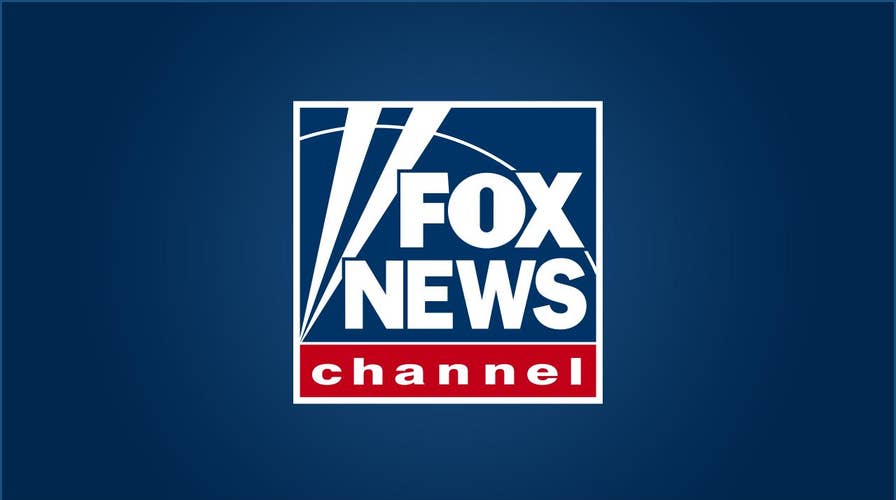As Americans awaited the final ballot results and Joe Biden held a slim lead over President Trump on Wednesday night, some analysts were zeroing in on the Libertarian vote in critical states as a potential help to the Democratic nominee.
As of Wednesday afternoon, little-known psychologist and Libertarian Party presidential candidate Jo Jorgensen had garnered 1.58 million votes – far exceeding other third-party hopefuls. She also received the second-highest number of votes in the party’s 49-year history, according to Reason magazine. And Jorgensen appeared to be beating the Trump-Biden margin in the battleground states of Michigan, Nevada and Wisconsin as mail-in ballots continued to be tabulated.
“In this election, Libertarian voters could have swung the Electoral College by at least 22 votes by supporting Trump in battleground states Wisconsin, Michigan and Nevada. By throwing away their votes, they’ve likely become spoilers for the Trump reelection effort,” political strategist Ryan Cassin, CEO of Beast Digital, told Fox News.
As of late Wednesday, former Vice President Biden was projected to have secured Wisconsin with 49.6% over Trump’s 49%, and Jorgensen came in third at just under 1%. In Michigan, Biden stood at 49.8%, over Trump’s 48.7% and Jorgenson again at 1%. Similarly, in hotly contested Nevada, Biden garnered 49.2% over Trump’s 48.6%, with the Libertarian Party (LP) coming in at 1.4%.
“In the tightest race of Wisconsin, Libertarian candidate Jo Jorgensen garnered 38,414 votes, around the normal 1% of the vote they normally do. This number is larger than to 21,000 votes that Democrat Joe Biden won this race by,” noted global risk analyst Dennis Santiago. “Wisconsin was crucial for Republican Donald Trump to win reelection. In the 2020 races where the painful artifacts of a deeply divided nation split the major-party vote so tightly, the Libertarian vote does determine a win or lose.”
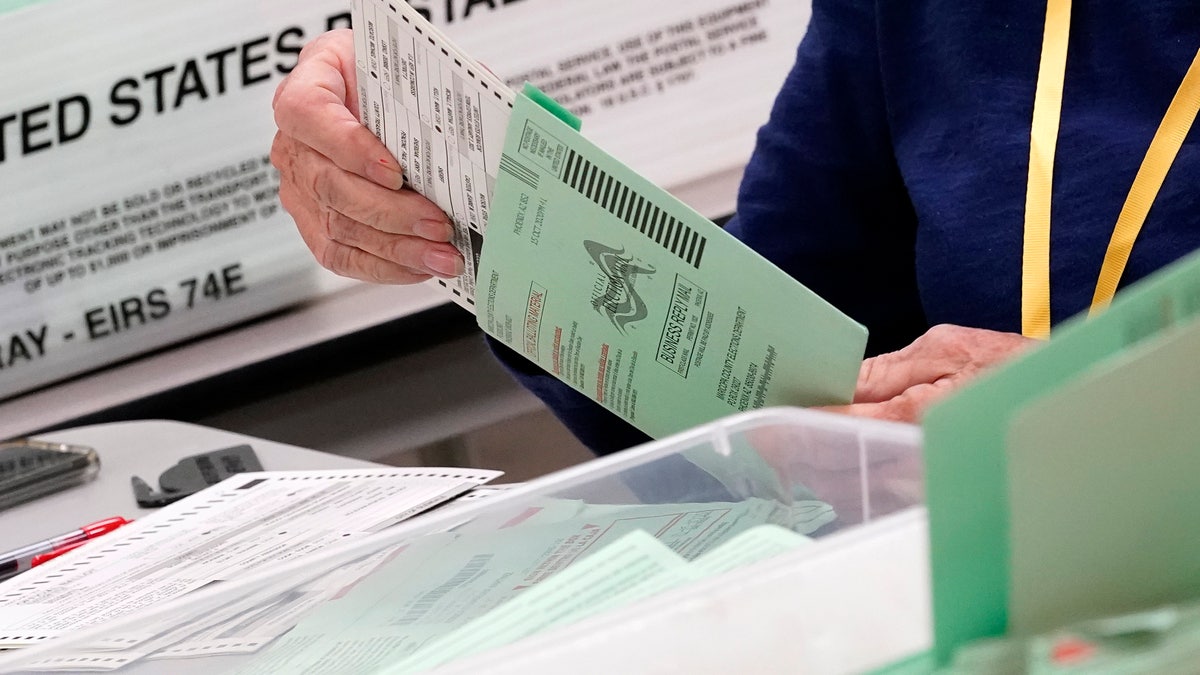
Election workers sort ballots Oct. 21 at the Maricopa County Recorder's Office in Phoenix. (Associated Press)
Third-party candidates can be viewed as taking votes away from the two major parties. While libertarian ideologies centered on small government, low taxes, extensive gun rights and personal freedom can both correlate and clash wildly with Democrats and the GOP, libertarians historically have been more closely linked to the red side. Ron and Rand Paul and the Tea Party movement cemented their own libertarian brand of Republicanism.
ELECTION 2020: INSIDE THE FIRST-EVER INDEPENDENT NATIONAL CONVENTION
Despite the lack of name recognition, Jorgensen – an Illinois native and the party’s first female presidential nominee – was polling as high as 4% going into Tuesday’s election.
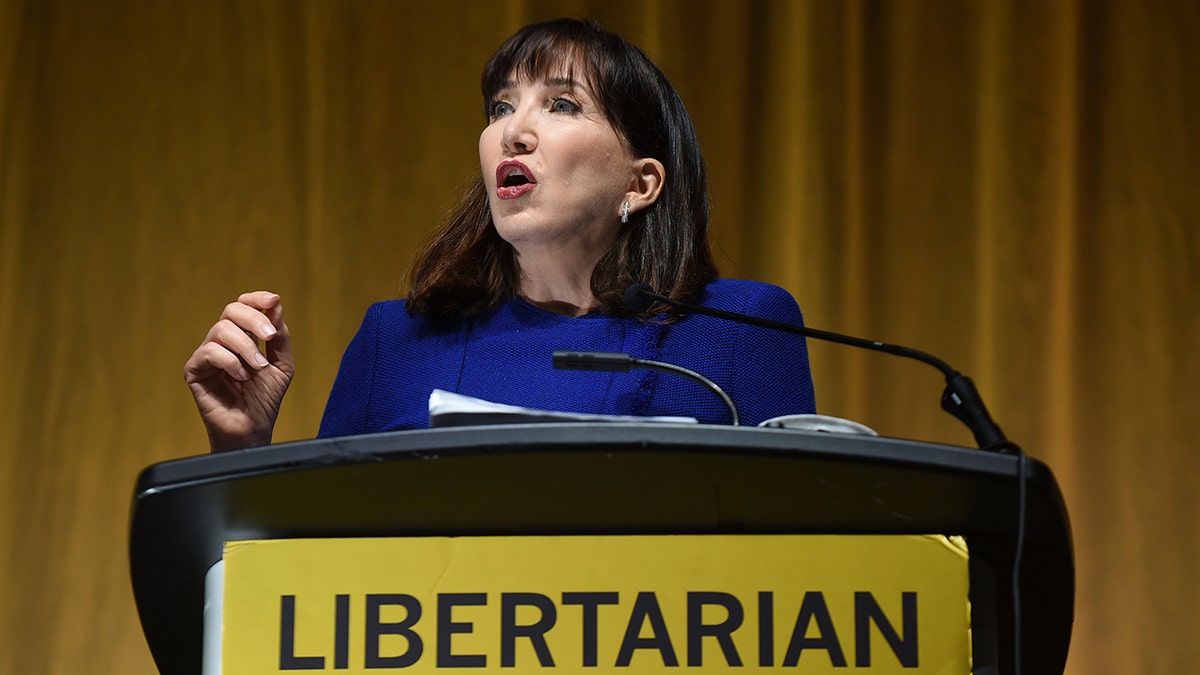
Jo Jorgensen, the 2020 presidential nominee of the Libertarian Party, gives her acceptance speech during the 2020 Libertarian National Convention at the Orange County Convention Center in Orlando, Fla., July 10, 2020. (Getty Images)
Jorgensen’s campaign website, under the tagline, “Generations of Republican and Democrat politicians have failed the people of America,” lambasted past leaders over the “$26 trillion in debt,” “non-stop involvement in expensive and deadly foreign war,” and “skyrocketing health care costs.”
However, that push might be exactly what Biden needed to clinch a victory, ushering in the opposite of what libertarianism advocates.
“The tragedy of wasting votes on hopeless candidates is that instead of getting someone who agrees with you on 80% of the issues, you risk getting someone who disagrees with you on almost everything,” Cassin conjectured. “In 2020, that means the threat of Supreme Court-packing, halting our economic recovery, reversing decades of work achieving energy independence, and putting the most liberal U.S. senator a heartbeat away from the presidency.”
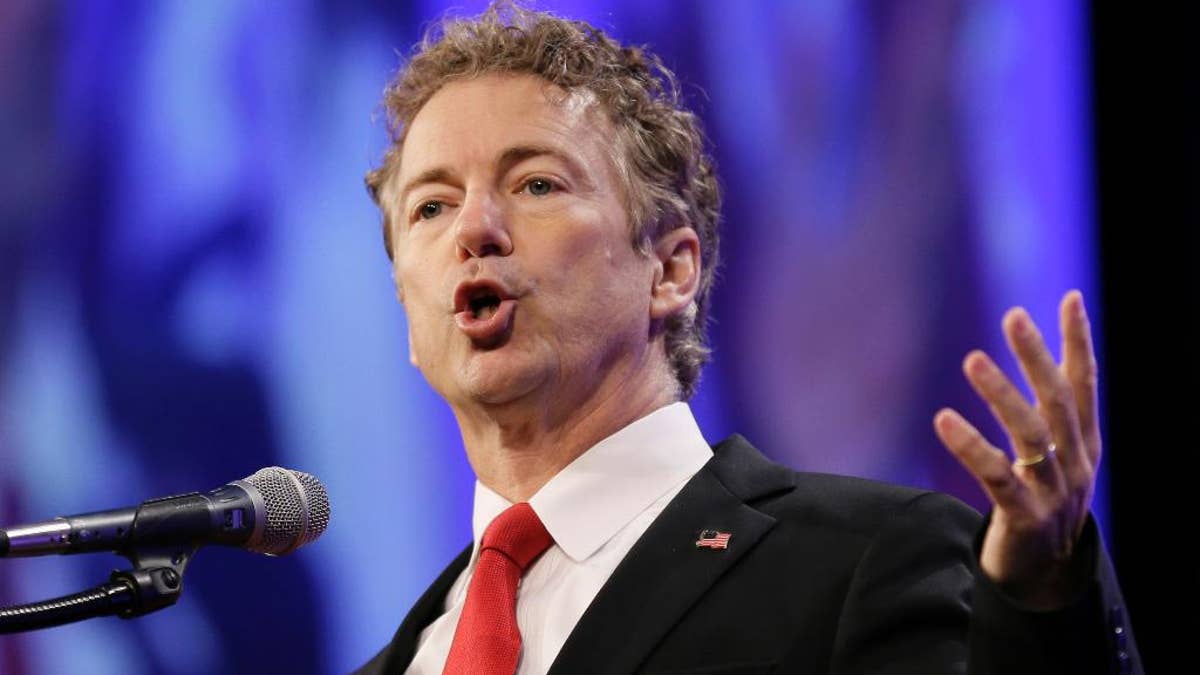
Republican presidential candidate Sen. Rand Paul speaks in Des Moines, Iowa, May 16, 2015. Congress’ debate over domestic surveillance is scrambling partisan divisions in the Senate as libertarian-minded Republicans defy their leaders to make common cause with liberal Democrats. (Associated Press)
Santiago concurred that “there very much is a note of irony that the 1% Libertarian vote that cast its heart might be left with many of their core values at risk with the return of an Establishment Democrat president to the White House.”
“Tactically, they would have done their agenda of opposition to gun control, taxes, and socialized health care better strategy odds by helping the more likeminded Trump stay in office,” he observed.
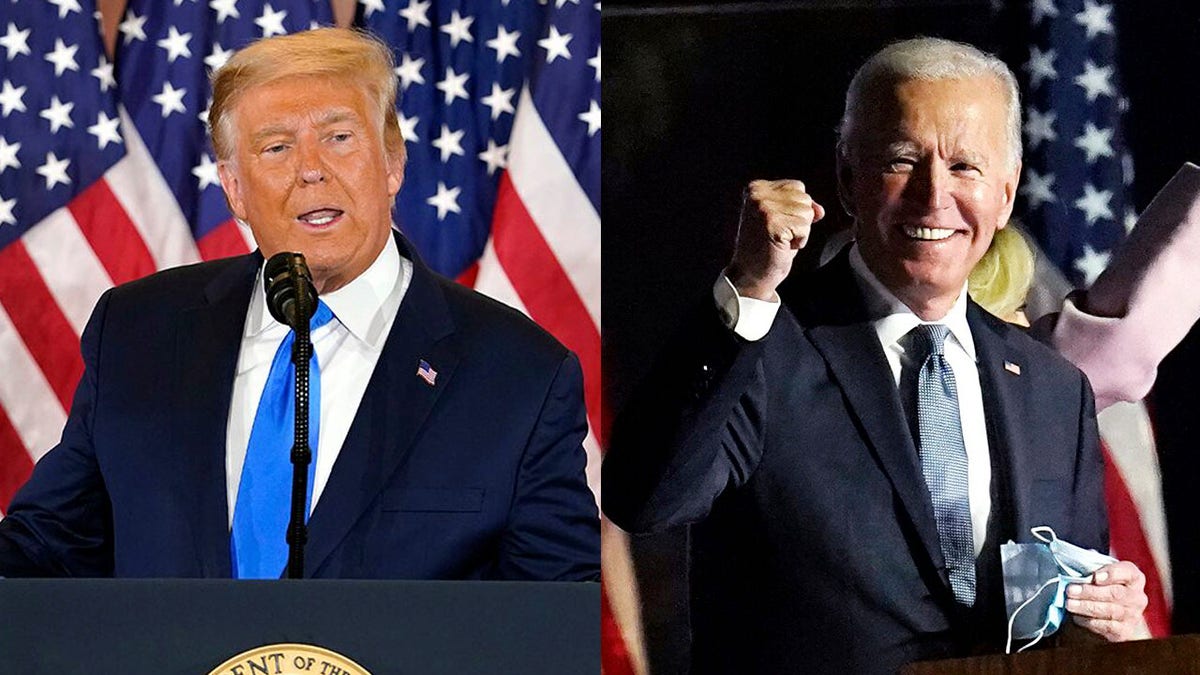
But Scott Sobel, senior vice president of crisis and litigation communications at the Washington-based firm kglobal, cautioned against the narrative that the LP detracted from the GOP.
“The fact is, that it’s hard if not impossible to make a blanket comment about whether a third-party voter would have chosen Trump or Biden if they didn’t have, for instance, a Libertarian choice too in this 2020 election.”
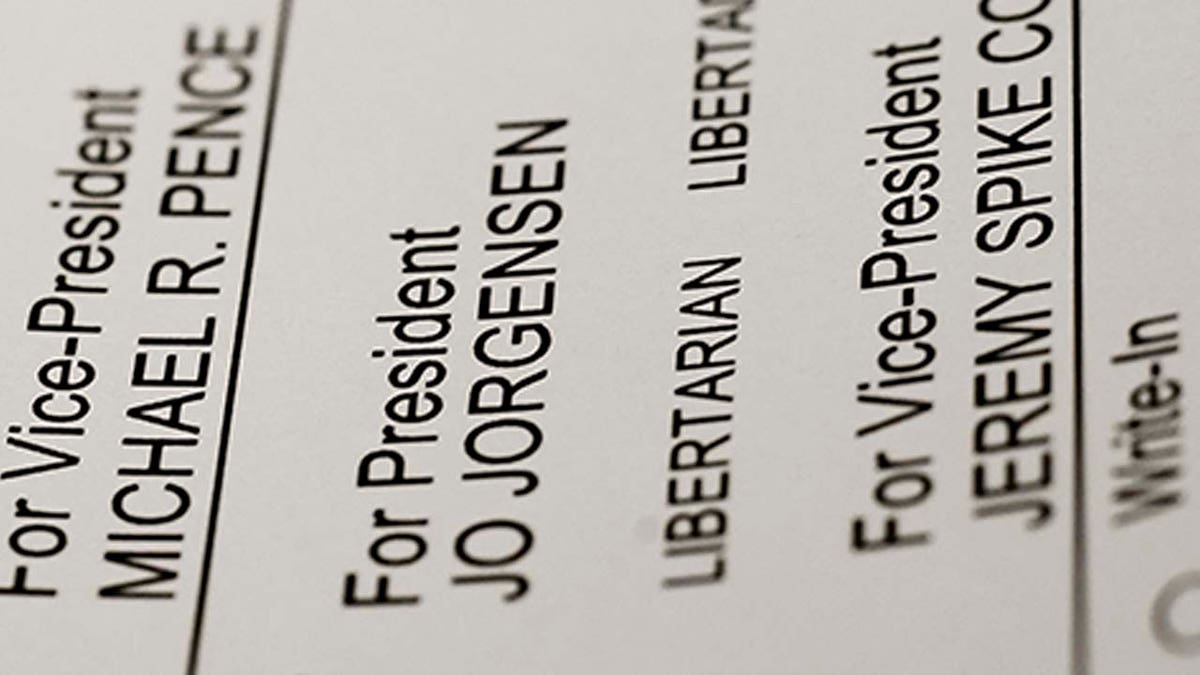
A detailed photo shows the section of a ballot with the selections for president. Joseph R. Biden, Donald J. Trump, , and Jo Jorgensen in Reading, Pa., Sept. 28. (Getty Images)
Sobel also emphasized that not all Libertarians line up on taxes or health care with Republican candidates either.
“The Republican Party today has been called President Trump’s party because conservative Republicans from past years would have disagreed with deficit spending supported by Trump and the Republican congress of today,” he said. “The same for the Republican Party that supported social programs in the past.”
CLICK HERE TO GET THE FOX NEWS APP
And in terms of the Libertarian future, Santiago surmised that the small but significant voting subset will become even more critical going forward.
“The Libertarian Party is not gaining raw vote popularity. They get their 1% reliably. Nothing has changed there. What has changed is that their meager 1% now matters much more intensely to the outcome of the larger election,” he added. “Their tiny number is highly leveraged. That means their agenda has newfound power on the national scene. I expect that the major parties will spend much more attention to reaching out to Libertarians as allies going forward.”

